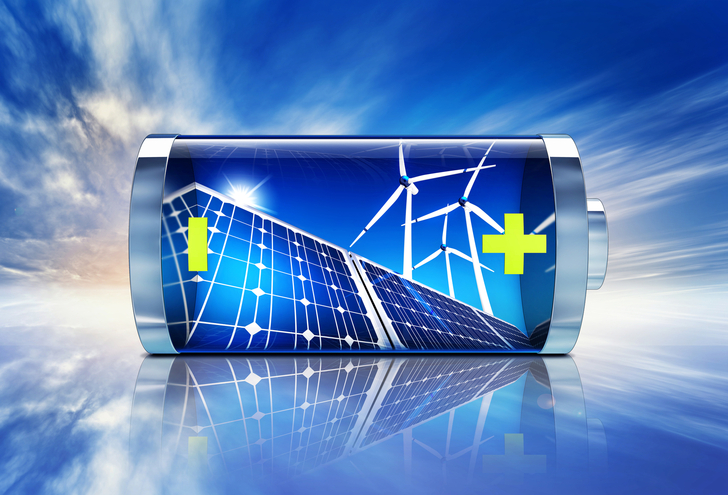Nowadays everyone is aware about the importance of private solar energy supply; however, having a solar panel only is not sufficient. To achieve the maximum benefit and long-term satisfaction, it is vital to invest in an Energy Storage System (ESS) for your solar energy as well.
An ESS would preserve the solar energy for use, this excess energy can be used at times when the there is shortage of sunlight and thus, solar energy. Therefore, with the help of an ESS, one can expand their benefits over a long period of time.
Before jumping in to buying a solar ESS, there are a range of characteristics, a potential purchaser must know to make the most out of their investment.
Battery Technology:
First and foremost, one must know the different types of batteries in terms of its technology, and the pros and cons of each type. Largely ESSs are categorized into three types: lithium, sealed lead-acid, and flooded lead acid.
- Flooded Lead Acid: This type of battery is the oldest. The flooded part of the name suggests that the battery consists of an electrolyte submerged in water. FLA batteries are preferable for a day worth of energy supply, they are easily recyclable and cheap but require regular maintenance that comprises of refilling the water in the battery.
- Sealed Lead Acid: Technological advancement led to the development of sealed lead acid batteries. They are also known as Gel or Valve Regulated Lead Acid batteries. The SLA batteries replace the water component with a gelled electrolyte, therefore removing the need to regular maintenance. Moreover, this type of battery does not discharge quicky and can handle high temperatures as well.
- Lithium Ion: Lithium-Ion batteries are the latest development in the battery industry. Although they are relatively expensive to the other types, lithium-ion batteries have high discharge capacities and therefore, have longer lifespans.
The Power Output:
Power output is a very important factor while determining a battery. The power output shows the power that the battery will supply. The higher the battery output the more appliances (or heavier appliances) the battery can support. By assessing the power output someone who needs to power small devices would not spend loads of money on expensive batteries with high power output, and vice versa.
Energy Capacity:
The capacity of a battery is also an important factor, it shows the amount of solar energy that can be stored in the battery for future use. Batteries with larger capacities are able to provide energy for a longer period of time as compared to those with low capacities. People who want to power many appliances or require a lot of power from the battery must also have batteries with higher capacity, because the more power is used from the battery in a given time, the quicker the stored energy would deplete.
AC/ DC Coupling:
Electricity is stored as AC; however, domestic appliances require DC. Therefore, AC must be converted to DC for use, this can be done with the use of an AC/DC inverter. Buying a separate inverter is one of the solutions but, it increases the installation costs. However, nowadays batteries are available with built-in inverter systems with which one can reduce their installation costs.
Battery Modes:
Different batteries offer different modes, a buyer should buy a battery that fulfills the user’s purpose.
- Off grid: User is not connected to the grid and therefore, solar energy from the battery is used to supply electricity for the entire house.
- Multi-mode:
- Back-up Mode: User is connected to the grid, but in case of grid failure, the battery can provide electricity instead. Preferable for those who face frequent electricity black outs.
- Time Based Control: This mode is specifically designed for when electricity is charged differently throughout the day. This mode enables the user to shift from grid to solar energy at the times when the electricity cost of the grid is high.
- Self-consumption: Self consumption is used during occasions when sunlight is not available for generating solar energy. This mode saves solar energy specifically to be utilized when solar panels cannot simultaneously provide electricity.
These are some of the important technical features of a solar battery a buyer must pay attention to. Other than this, other factors such as product warranty, maintenance services, price, and safety should also be considered.
Media Details:
List Solar
Luther Bandy
Source: Story.KISSPR.com
Release ID: 39790

